Minari: A tale of two (or more) grandmas
 Wednesday, March 3, 2021 at 3:00PM
Wednesday, March 3, 2021 at 3:00PM By Lynn Lee
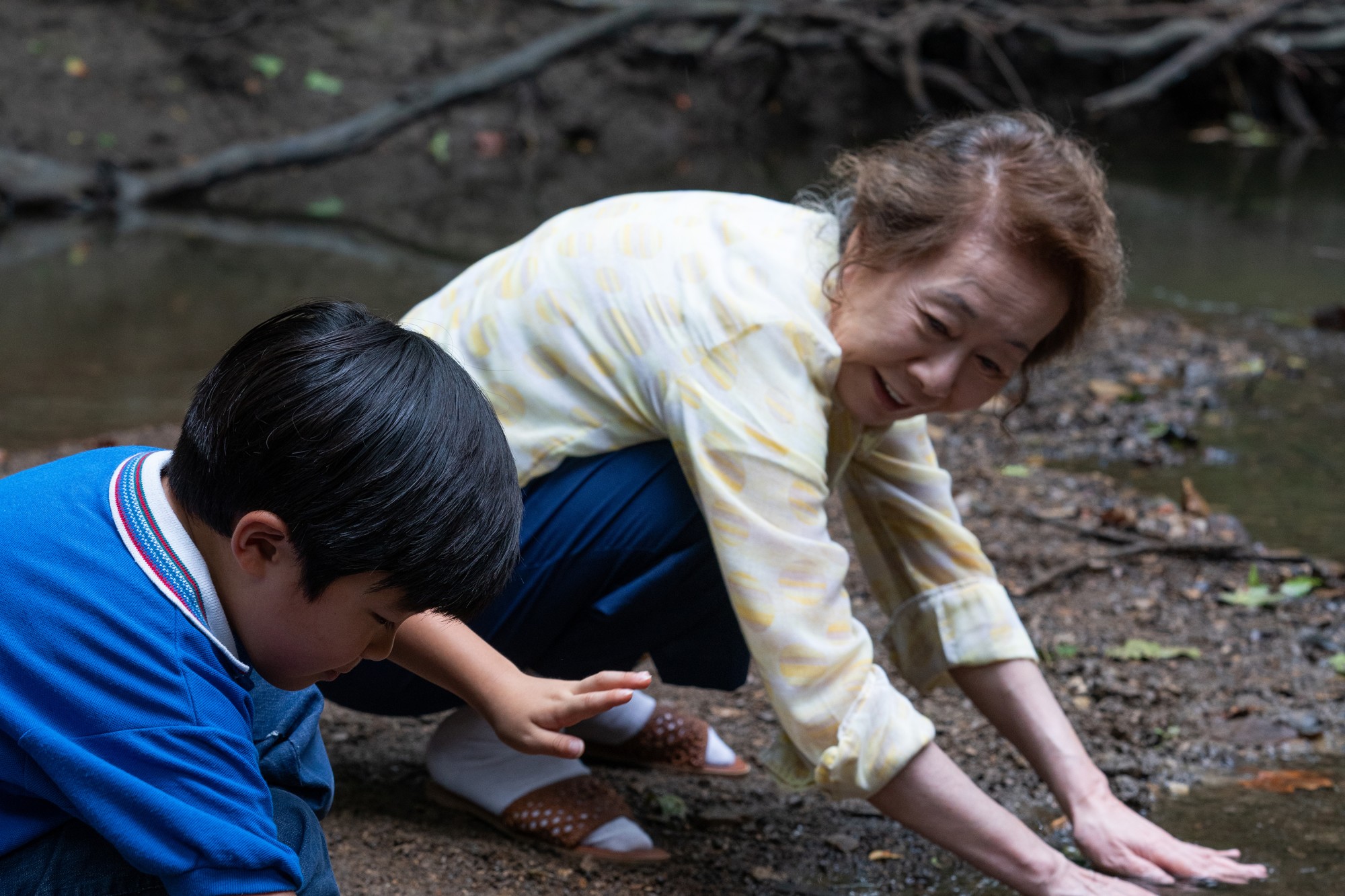
This is a story about grandmothers.
Having finally seen Minari, I’d originally intended to write about its place in the evolution of Asian American film over the last 20 years. Or about Steven Yeun becoming the new face of Asian American masculinity in Hollywood. But I couldn’t stop thinking about the Korean grandmother, Soon-ja, played by Youn Yuh-jung, because she reminded me so much of my own late grandmother. Youn’s vibrant, hugely endearing performance—still Minari’s best shot at an Oscar acting nomination—and the cultural specificity of her character struck a chord of recognition that reverberated right to and through my core...
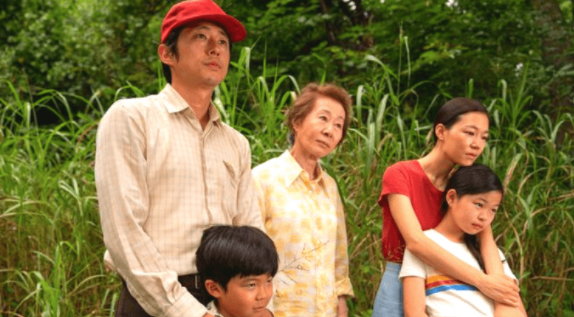
In the movie, Soon-ja moves from Korea to the Yi family’s farm in Arkansas, ostensibly to help with the kids, but really to provide company and support to her daughter, Monica (Han Ye-ri), who’s unhappy at being uprooted from their more stable (and social) life in California. Soon-ja doesn’t take sides or try to mediate the rising tensions between Monica and her husband, Jacob (Yeun) – not directly, at least. Instead, she focuses her energy on winning the trust and affection of her grandchildren, David (Alan Kim) and Anne (Noel Kate Cho). David is initially hostile because Soon-ja is a stranger who doesn’t act anything like his idea of a “real grandma” – she curses, likes to play cards and watch professional wrestling, and offers him a weird-tasting medicinal brew instead of cookies.
Nonetheless, she eventually wears down his resistance with her mild responses to his most devilish pranks, perhaps sensing a kindred rogue spirit in him, and her confidence in his strength and resilience, which contrasts sharply with his parents’ constant fears for his health. (Their fears aren’t baseless; David has a heart ailment. Soon-ja simply doesn’t worry about it or act as if David needs to worry about it.) The bond between them only grows stronger as the family’s situation becomes increasingly precarious, and Youn captures the feisty, irreverent charm of a woman who may be old in years but young in spirit.
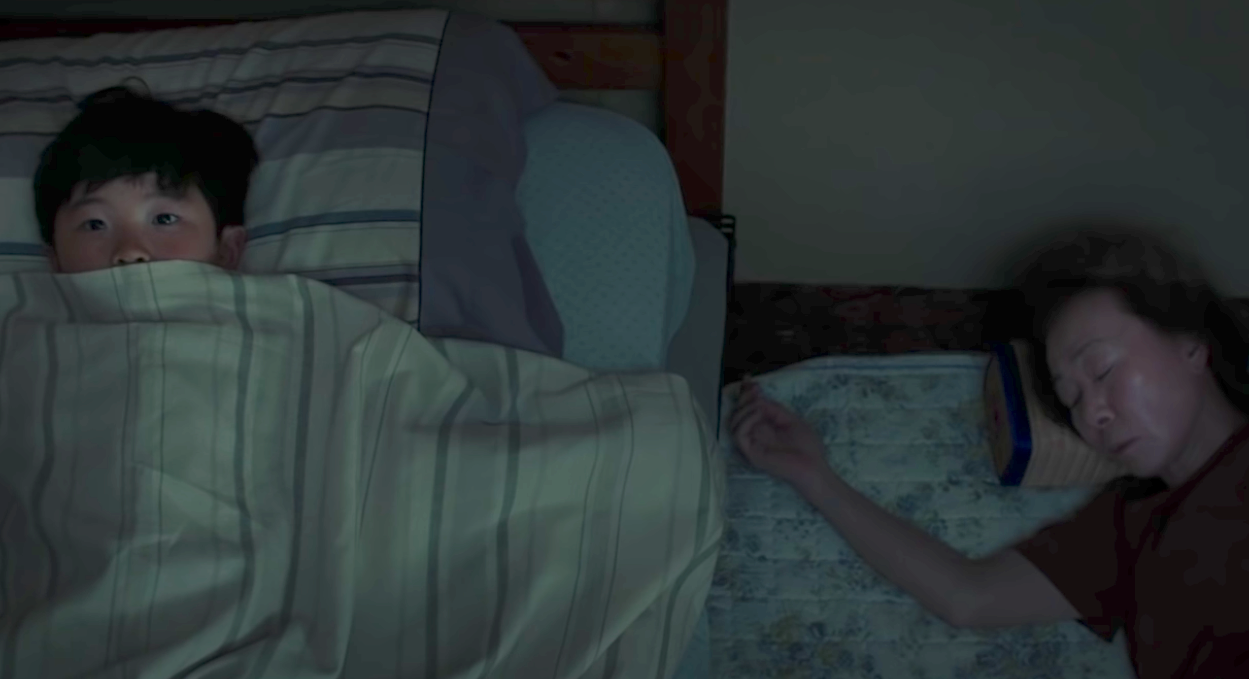
My own mother’s mother, the only grandmother I ever really knew, followed her daughters from Seoul to the U.S. in the 1970s. She lived in Los Angeles, dividing most of her time among the households of my mom’s three sisters who also lived there, but would periodically travel across the country to stay with us for extended visits during the ’80s and ’90s. She only knew a smattering of English words, and my spoken Korean was basic at best, but like David, I went from finding her strange and exotic to a comforting, familiar presence.
She wasn’t, mind you, your standard sweet old lady, any more than Soon-ja was. While kind to me, she had a tart tongue for others, enjoyed going out and shopping for gewgaws, and excelled at sports and games. A devoted Dodgers fan, she was obsessed with major league baseball and, like Soon-ja, also loved to watch professional wrestling, which she firmly believed was 100% real. I have fond memories of watching long hours of baseball and WWF with her, entertained not so much by what was on the TV as my grandmother’s excited and often salty running commentary in Korean. She liked to play hwa-tu (also known as go-stop), the card game Soon-ja plays with the children in Minari; I liked it, too, though I preferred to secret away the cards, because I thought they were so pretty, and create my own games and stories with them.
All of which is to say, while watching David’s scenes with Soon-ja, never had a film felt so immediately culturally recognizable or so specifically personal to me. I know that woman, I thought; I know the world she inhabits. I even knew what David meant when he squalls, “Grandma smells like Korea!” (To quote another Korean American critic, “merely hearing that line became a piercing reminder of my own grandmother’s scent: a mixture of soybeans, herbs, and perfumed makeup.”) How could that person and that slice of my life be captured so perfectly and precisely by someone I didn’t even know?
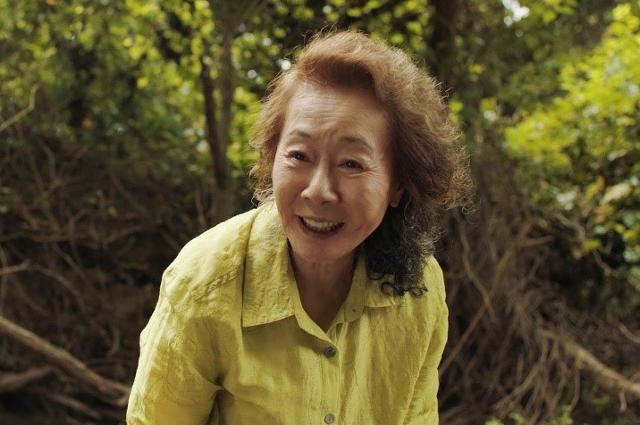
Undoubtedly a lot of the credit goes to the delicate craftsmanship of writer-director Lee Isaac Chung, who drew from his own family story and childhood in rural Arkansas. I wrote in 2019 about The Farewell “Its very specificity, which [Lulu Wang] admirably refused to compromise, is ironically what gives the movie such broad appeal.” That’s even truer of Minari and the way it makes the details of Chung’s experience feel at once intensely personal and unexpectedly universal.
When it comes to Soon-ja, however, Chung credits Youn for this feat of emotional alchemy:
I never felt like I had to explain who this person was to her. And honestly, what was fascinating to me was that she talked a lot about her own grandmother while thinking about what she wanted this person to be like. So she went very personal with it. I love that she found echoes of her grandma in the script.
Chung told Youn not to concern herself with capturing the details of what his own grandmother was like. And yet...
…after making the film, my mom watched it and we talked about how Yuh-jung Youn was able to capture the spirit of my grandma somehow. My mom couldn’t stop dreaming about her mom, my grandma. But she would see Yuh-jung Youn as her mom now.
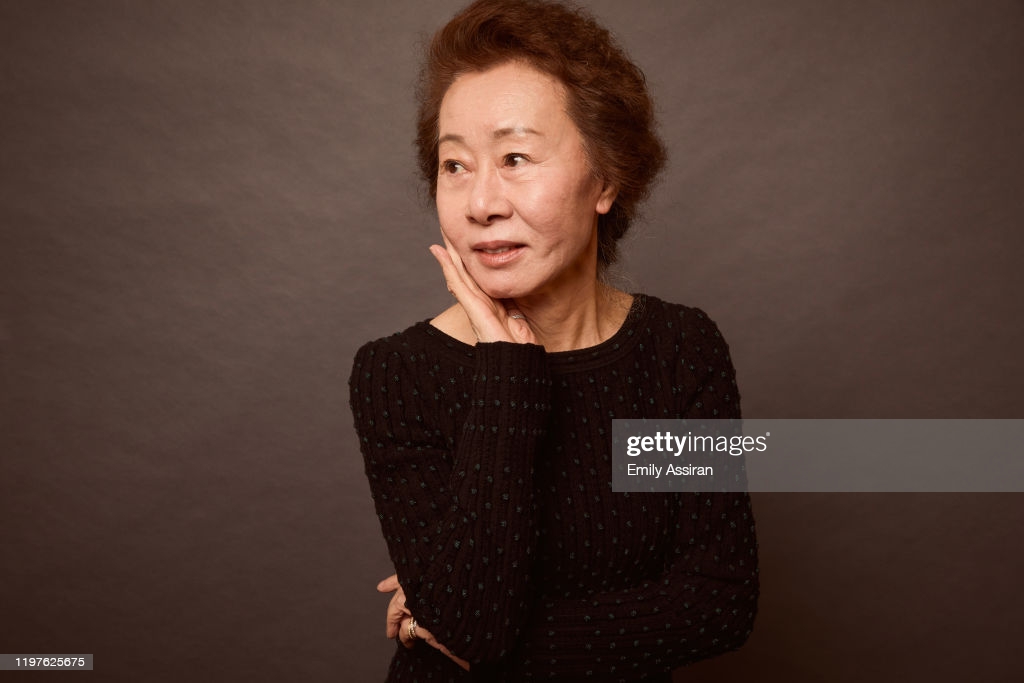 Youn Yuh-jung, South Korean acting legend.
Youn Yuh-jung, South Korean acting legend.
As any good Korean American movie lover would do, after seeing Minari I bugged my parents to see it, too, as soon as possible. They did, and my mom emailed me afterwards praising the film’s subtlety and the quality of the acting. She also commented that the grandmother reminded her of her own mother.
So maybe there really is a universal Korean grandmother essence somewhere out there in the dream-ether that Youn was able to channel. I like to think of her as the guardian spirit of Minari. Like the herb she plants, she can take root and flourish anywhere, and we are all the richer for the memories she evokes.




Reader Comments (18)
Youn Yuh-Jung is so good in this film. One of my favorite things about it is the way she defies David's expectations of femininity. She perfectly captures that spirit, while also being totally comfortable in her own skin throughout the film. I also just think she gets some of the best laugh lines of the entire films and sells them with such ease.
If voters fall for Minari, and I think they will, it's because of her work and I think she'll be rewarded with a nomination. It's hard to see her winning without a big scene - something voters love from actresses in this category - but she's truly marvelous.
What a lovely write-up that captures the essence of the movie so eloquently.
Thanks for sharing your words. :-)
Lynn -- i already told you this but i looooved this piece. It's really stunning how personal this feels to some people. But even as someone who has no immigrant story until you go back several generations before his existence and is not Asian, it resonated with me so much, too. I guess that's the magic of universality through hyper-specificity that we see in many of the greats in all kinds of art.
Before seeing the movie, I was skeptical that an unknown Asian actress would be able to crack the Supporting Actress 5, but after seeing it, you just fall in love with the character -- her warmth, her strength, her humor. I would honestly be shocked if Youn doesn't make it, despite previous Academy biases. The character just sticks with you and the movie is centered around her presence.
If they didn’t nominate the grandma from The Farewell, they won’t nominate this grandma
I'm loving this piece of writing, even if I didn't quite love Minari.
I found the Sundance script lab got in the way of the film's authenticity a few too many times.
So much of the script is made up of lines and moments with lived-in brilliance (eg. 'grandma smells like Korea') that when the American-script-consultant indie-speak finds its way into the characters' mouths (especially in the parents' conversations toward the end), for me it really jarred.
Similarly something felt off about Yeun. I never bought him as a migrant. Beyond just his accent slipping every two minutes, there's a whole energy about him that felt like a second-gen kid impersonating crises he mainly grasps on a surface-level.
But that said, I still found plenty to like and be moved by in the film overall, and just absolutely loved the women in it.
You capture so gorgeously what's fantastic about Youn Yuh-jung and her character, and how the specificity and 'un-grandma-ness' of her behaviour counter-intuitively makes her feel that much more universal and relatable.
I've gotta say though, much as I loved Youn, I came away from the film thinking about Han Yeri even more. Everything about her choices and subtle shifts and postures, the moments when she allows and doesn't allow glimpses of incredible sadness and trauma to blip through this steely resolve. I found so many parallels between her and almost every migrant mother I know (including my own).
I'm a bit frustrated that she hasn't featured more in the award conversations, and conversations about this film in general.
Youn Yuh-jung is the grandma that should win Oscar, not the one from that white frustration hillbilly mess.
What a great runner-up to Close she would be! Get that nomination and hopefully an Asian actress can breakthrough for the win some year soon. Journalists need to get loud like they do one a single predominantly white year for nominations and the outrage for the Black actors they scream from the rafters. Americans are alas very black and white in race relations/representation.
@Sam why do you post so much about your disdain for Hillbilly Elegy? Christ, it's not that bad.
I dont know what it is about Korean grandmas, but my grandmother is also crazy about baseball, and I learned to play hwatu from her as well. I miss her.
I think with Han Ye-ri category confusion is to blame. They are running her in Lead Actress but she's nominated for Supporting Actress at the Indie Spirits. She is splitting her vote unfortunately.
The movie didn't quite come off for me. It all kept threatening to turn into something wonderful, but never quite made it. But the acting was superb across the board, especially Alan Kim (I'd like to see him become the youngest Acting Oscar winner ever), and Han Ye-ri.
Loved Yuh-jung's performance and really hope she gets nominated for it (also hope Minari gets at least a nom for BP). She's just that good. Great writing here, Lynn Lee!
ceebee0714, Nathaniel, goran, Rob - thanks! I'm so glad it resonated.
And goran - I think I know what you mean about the unevenness. The third act of the movie felt a little less organic, a little more forced than what came before. But as for Yeun, I quite liked his performance; while I've heard others critique his accent, it honestly didn't bother me. When you suggest he's less than convincing as a 1st generation immigrant, I can't help wondering if part of it is because you already know he's not, or because he seems too young or too smooth and gentle in his demeanor...Chung has basically admitted he softened the character for Western audiences.
Paranoid Android - I know you mean unknown in the U.S., but it bears emphasis that Youn is a famous star in Korea. Vulture has a great profile of her that's well worth reading:
Youn Yuh-jung Comes to America
Isaac - maybe it was a thing with Korean ladies of a certain age? Someone should do a study, heh.
And to Han Ye-ri's fans, I agree she deserves more praise. It's a beautifully modulated performance, even if it's too quiet for Oscar. So is Yeun's, but at least he's better known as an actor so he has a chance, though I'm not very optimistic.
I'm torn.... will the Oscar come down between two feisty Grannies who stole our hearts??
One is a huge icon in a much vilified movie n the sentimental choice to win, n the other, also a beloved icon in Asia, in a best pic potential.
Its sad tt only Youn & Yuen r lauded by critics, I thot Han Yeri is so moving, I ustand y the studio moves her to Lead to prevent vote-splitting w Youn. But Leading Actress is soo stacked, a subtle turn like Han will never land thr...
A granny wins this year! Shame it's Close though.
Lynn Lee, re. " When you suggest he's less than convincing as a 1st generation immigrant, I can't help wondering if part of it is because you already know he's not, or because he seems too young or too smooth and gentle in his demeanor..."
You're very right, I imagine I'm pretty biased by that awareness. And I didn't realise it was also Chung's decision to soften the character for Western palates.
For what it's worth, I did also feel like Yeun's style of acting overall was very knowingly pitched at an American audience, compared to the more restrained, naturalistic approach of the other Korean actors, as well as actors in Korean arthouse drama in general. But again, this is in the context of me knowing he's second-gen, and me being routinely hyper-alert to any hint of (what I see as) artifice whenever second-gen kids portray first-gen migrants.
...I'm sure this has nothing to do with my own background as a first-gen migrant kid with an excess of arts degrees...
A beautiful piece— you captured here a big reason why we love movies— the human connection.